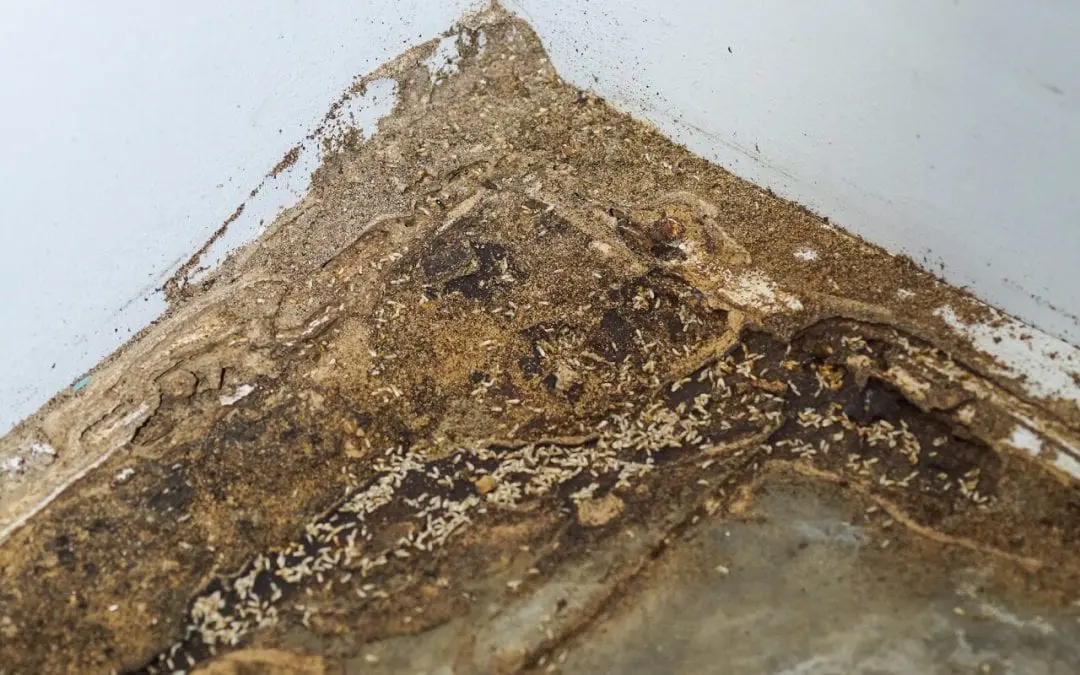If you detect a termite infestation in your home, act quickly to avoid costly structural damage. Typically, you will notice an infestation during the spring because the rain and warmer temperatures prompt the insects to begin new colonies. The following article lists signs of a termite problem so you’ll know what to watch for.
A Termite Infestation Causes Damage to Many Areas of the Home
Having a termite invasion in your home is frustrating and often quite expensive. Termites feed on wood, which means they can destroy the infrastructure of your home. They also eat other substances like insulation, paper products, drywall, and even filters in the home.
1. Discovering a Termite Indoors is the First Sign of a Termite Infestation in Your Home
Finding a winged termite inside of your home is one of the key indicators that you have a problem. As the insects begin new colonies, they send out the winged termites to find a new area. Seeing one winged termite means that there are many more in a colony nearby and warrants a termite inspection by a professional.
2. Sounds Coming From the Walls
If you hear sounds coming from within your walls, this can be a sign of a termite infestation in your home. You may hear a clicking sound, which is how termites communicate with each other. Also, if you put your ear against the wall, you may be able to hear termites chewing.
3. Termite Droppings
Termites will leave behind droppings, called frass. This will look like a powdery substance resembling sand or coffee grounds. Typically, frass is found near small holes adjacent to their nest entrance.
4. Wings That Have Been Shed and Left Behind
Termites with wings are sent out first to scout areas for new colonies and begin the mating process. Once they have decided on a location and have landed, they will shed their wings. If you find wings in your home, this is a sign that the mating process has already begun and you may have a termite infestation.
5. Detect a Termite Infestation by Looking for Mud Tunnels
Subterranean termites build mud tunnels for traveling. These tunnels help to provide them with the moisture that they need when they have to leave their colony to find food. Subterranean termites are usually the most destructive type, and finding these tunnels near your home is a sign of a termite problem.
Detecting a termite infestation in your home can be quite disheartening. The above warning signs will help you determine if you have termites so you can take action before serious damage is done.
TUFF Home Inspections provides termite inspections in New Jersey. Contact us for an inspection to detect termite activity in your home.

